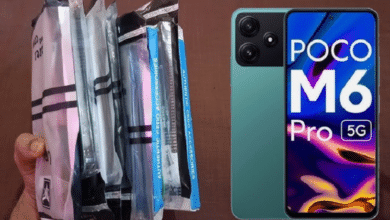Buying a Small Business Made Simple

Starting a business from scratch is challenging. That’s why many entrepreneurs prefer buying an existing small business—it often comes with a customer base, reputation, established cash flow, and trained staff. If you’re looking for growth without starting at ground zero, this route is practical, profitable, and far simpler than you may think.
Top Benefits of Buying a Small Business Compared
| Benefit | Startup | Buying Existing Business |
| Customer Base | Requires building from scratch | Already established |
| Revenue Flow | Takes time to develop | Cash flow from day one |
| Branding & Reputation | Need to build it | Pre-existing recognition |
| Supplier Relationships | Must develop connections | Existing networks in place |
| Staffing | Need to hire and train | Often comes with trained employees |
| Risk Level | High | Lower (with proper due diligence) |
How to Find the Right Small Business to Buy
Before anything else, identify your passion and industry experience. Buying a business you understand increases your chance of long-term success.
Set a Budget and Financing Plan
Have a clear budget. Will you self-fund or seek financing through 99math home loans, banks, or investors? Lenders usually prefer funding established businesses with proven revenue.
Search Through Reputable Sources
Look for listings on trusted business-for-sale platforms, local broker sites, and industry-specific directories. Attend networking events or consult with a business broker.
Conduct Initial Screening
Shortlist businesses based on profitability, location, age, customer base, and competitive advantages.
Key Steps in Buying a Small Business
| Step | Why It Matters | Tips |
| Identify Goals | Helps narrow your search | Consider lifestyle, income, location |
| Research Listings | Access a wide variety of options | Use multiple platforms and networks |
| Evaluate Performance | Assess financial viability | Examine tax returns, P&L statements |
| Perform Due Diligence | Avoid surprises | Hire accountants and legal professionals |
| Make an Offer | Start negotiation process | Ensure contingencies are clearly stated |
| Close the Deal | Finalize legal paperwork | Secure financing and transfer ownership |
Due Diligence: The Heart of a Smart Purchase
Inspect revenue statements, tax returns, debts, payroll, and operating costs. Look for consistent earnings and signs of growth.
Legal Matters
Check licenses, legal disputes, employee contracts, and zoning compliance. Legal missteps can derail the deal after the purchase.
Operational Review
Evaluate staffing, customer feedback, vendor relationships, and daily workflow. Are employees likely to stay after the transition?
Asset Evaluation
Know what physical or digital assets are included—inventory, equipment, branding, intellectual property, or real estate.
Market and Competition Analysis
Understand the local or niche market conditions. Is the industry growing? What are competitors doing differently?
Common Mistakes When Buying a Small Business
- Not conducting proper due diligence
- Overlooking hidden debts or lease obligations
- Underestimating transition challenges
- Ignoring customer reviews and brand reputation
- Failing to plan post-acquisition operations
- Not negotiating terms or contingencies effectively
Legal and Financial Tools You’ll Need
- Business Attorney: For contract review, compliance checks, and ownership transfer.
- Accountant: For auditing financial records and assessing tax implications.
- Business Valuator: For appraising the true worth of the business.
- Loan Officer: If seeking outside financing or SBA loans.
How to Finance a Small Business Acquisition
Backed by the U.S. government, these loans offer competitive interest rates and longer terms.
Bank Loans
Traditional financing that requires excellent credit and a strong business plan.
Seller Financing
Some owners may offer to finance part of the sale. This builds trust and smooths transition.
Investor Capital
Partner with silent or active investors who want a share of the future profit.
Your Savings
Self-funding reduces complications, but risks more personal capital.
After the Purchase: Making the Transition Smooth
- Communicate Early with Employees and Clients
- Retain Key Staff and Offer Training Support
- Update Branding Only When Necessary
- Retain Existing Vendor Relationships
- Measure Success with Clear KPIs
Tips to Grow Your Newly Acquired Business
- Analyze what already works before changing anything
- Introduce new marketing tactics or pricing models slowly
- Invest in technology upgrades or automation tools
- Expand into digital marketing if previously underutilized
- Focus on customer retention and upselling
Conclusion
Buying a small business doesn’t have to be overwhelming. With the right happymod apk steps, trusted professionals, and clear objectives, it becomes a powerful strategy to skip the startup struggle and jump directly into growth. The key is research, due diligence, and careful planning. If you want to take control of your financial future without building from zero, buying a small business made simple could be your smartest move yet.
FAQs
What are the biggest advantages of buying a small business?
The main benefits include instant cash flow, existing customers, and established operations, making it faster to profit.
How do I know if a business is worth buying?
Look at consistent revenue, growth potential, low debt, strong customer base, and clean legal history.
Is it better to buy a business or start from scratch?
Buying a business often carries less risk and offers quicker returns, especially if you’re new to entrepreneurship.
What is due diligence and why is it important?
It’s the in-depth review of a business’s financial, legal, and operational status to avoid costly surprises after purchase.
Can I get financing to buy a small business?
Yes. Options include SBA loans, bank loans, seller financing, or investor partnerships.
Should I use a broker to buy a business?
A broker can help identify good deals, handle negotiations, and manage legal paperwork, especially for first-time buyers.
What’s the average time to buy a small business?
The process can take 3 to 6 months depending on complexity, financing, and negotiation stages.




